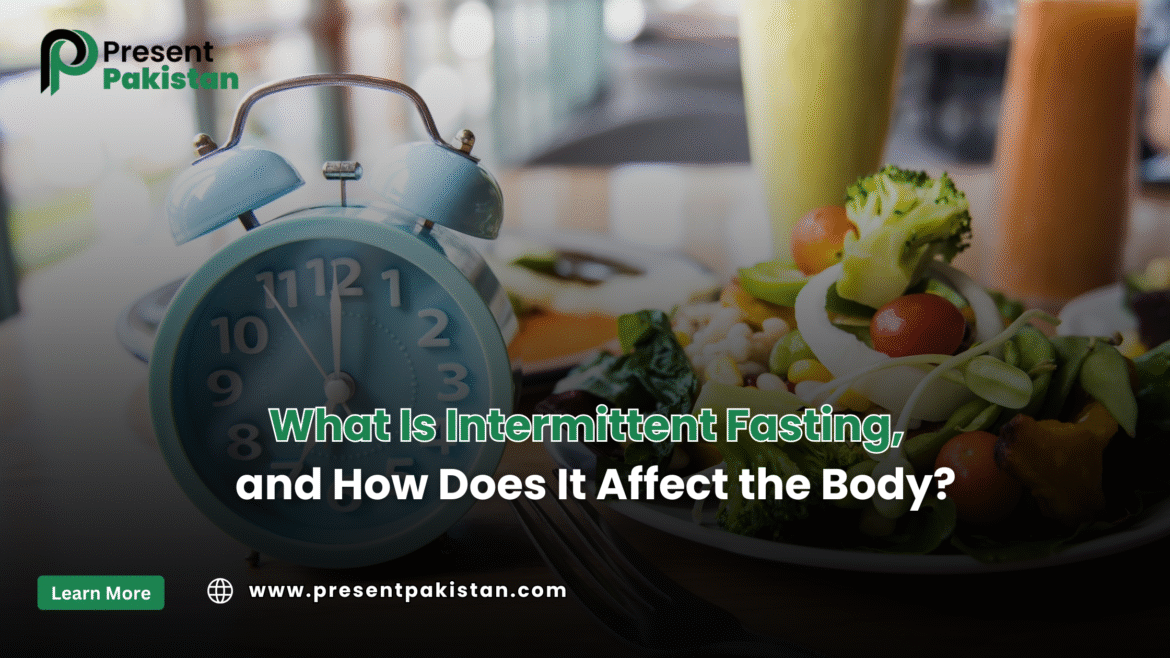Intermittent fasting explained: what it is, how it affects the body, benefits, risks, and science. Fasting: How It Affects the Body presents essential information about a life-altering eating habit.
Intermittent Fasting and Its Impact on Metabolism, Hormones, and Fat Loss
It is beneficial by increasing metabolic health, optimizing brain function, and encouraging fat loss. Employing semantic words such as time-restricted eating, metabolic switching, cell repair, and hormone regulation, this article delves into the physiology, benefits, and potential risks of intermittent fasting. Internally, see more health-science material on our website at the health section, nutrition wellness articles, and expert advice for sustainable fasting techniques, all linked below.
Find more content specific to your health journey; check out our health guides, dietary science insights, and wellness articles for a better read.
Table of Contents
- What Is Intermittent Fasting?
- How Does Intermittent Fasting Affect the Body?
- Hormonal and Metabolic Changes
- Cellular and Gene-Level Effects
- Impact on Organs and Systems
- Hormonal and Metabolic Changes
- Proven Benefits of Intermittent Fasting
- Potential Risks and Considerations
- Types of Intermittent Fasting
- Best Practices and Common Mistakes
- FAQ
- People Also Ask
- Call to Action
- Conclusion
What Is Intermittent Fasting?
Intermittent fasting, or IF, is not a diet but rather an eating pattern. It’s not what you’re eating, but when you’re eating. You divide eating windows and fasting times, typically with time-restricted eating or alternate-day cycles.
Key Points:
- Governs eating times, not foods or calorie intake.
- Used all through human history and in religious rites.

How Does Intermittent Fasting Influence the Body?
Hormonal and Metabolic Alterations
With fasting, insulin levels plummet, triggering fat metabolism. Growth hormone (HGH) can rise several-fold, allowing for sparing of lean mass and fat oxidation.
Metabolic adaptation also allows your body to shift from glucose to stored fat, producing ketone bodies as fuel.
Key Points:
- Decreased insulin augmented insulin sensitivity and fat release.
- Increased growth hormone facilitates lean mass sparing.
Cellular and Gene-Level Effects
Fasting triggers autophagy, the cellular housekeeping function of the body in which damaged proteins and organelles are demolished. Fasting impacts longevity gene expression, repair function, and control of inflammation. Sirtuin signaling and mTOR/AMPK pathways play a role in neuroprotection and metabolic health.
Key Points:
Autophagy preserves cell integrity and robustness.
Gene regulation through fasting is a positive influence on long-term health.
Effect on Organs and Systems
It was seen to impact various systems, with the following effects being reported:
Cardiovascular and heart: decreases blood pressure, LDL cholesterol, triglycerides, and inflammatory markers.
Brain and cognition: Increases BDNF, neural plasticity, and memory storage, and likely prevents neurodegenerative disease.
Liver and metabolism: Clinical and animal data affirm reversal of nonalcoholic fatty liver and lipid profile in fasting models.
Key Points
- Improves cardiovascular strength and metabolic control.
- Improves brain function and liver function.
Established Benefits of Intermittent Fasting
It provides several evidence-supported benefits:
- Weight loss & fat loss: by decreasing calorie consumption and promoting fat burning.
- Improved glucose regulation: enhances insulin sensitivity, decreases fasting blood glucose.
- Decreased inflammation: fasting decreases markers linked with chronic disease.
- Cardiometabolic well-being: averts obesity, dyslipidemia, and hypertension.
- Potential longevity & cell renewal: new findings document deceleration of aging processes.
Main Points:
- Multisystem advantages confirmed in research for weight, heart, brain, and lifespan indicators.
- Benefits mimic calorie restriction with more likelihood of success and potential adherence.
Possible Risks and Implications
While promising, there is no risk-free intermittent fasting:
- Some studies suggest severe time-restricted diets (e.g., 16/8) can increase cardiovascular risk if ill-managed.
- Side effects: headaches, dizziness, mood swings, constipation, and possible menstrual irregularities.
- Not approved for pregnant/breastfeeding women, children, or individuals with eating disorders, type 1 diabetes, or other chronic illnesses without physician recommendation.
Key Points:
- Must vary fasting type and duration according to the individual health context.
- If you have health concerns, seek advice from a medical professional before beginning.
Types of Intermittent Fasting
Here are some of the most frequently practiced fasting formats:
- 16/8 time-restricted eating: fast for 16 hours, eat within an 8-hour window.
- The 5:2 diet consists of two days of calorie restriction (approximately 500–600) after five days of regular eating.
- Alternate-day fasting is the practice of switching between feeding days and full fast days.
- Sometimes, long fasts (24–36 hours) are carried out under supervision to improve autophagy and metabolic effects.
Important Points:
- Choose a plan that fits your goals and way of life.
- Gradually make progress by beginning with smaller windows and transitioning.
Best Practices and Common Pitfalls
Avoid overconsumption within the feeding window. Select whole foods, protein, fiber, and healthy fats.
- Hydrate with water, herbal tea, or black coffee during fasting.
- Prevent nutrient deficiencies: incorporate micronutrient‑dense meals within feeding windows.
- Maintaining consistent fasting durations for circadian entrainment is crucial.
- Pay attention to your body and adjust your fasting strategy if extreme hunger, exhaustion, or irritability becomes the new normal.
Important Points:
- Long-term maintenance of intermittent fasting depends on eating a balanced diet and drinking plenty of water.
- Consistency and individualization maximize outcomes.
Fasting vs. Other Diets
| Intermittent Fasting | Keto | Calorie Restriction |
| Focus on timing | Focus on fat adaptation | Focus on reducing daily intake |
| Hormonal balance | Ketosis | Nutrient-focused |
| Flexible & sustainable | Often restrictive | May slow metabolism over time |
Key Points
- IF combines well with other approaches like keto or paleo.
- Easier adherence for many people compared to strict diets.
FAQ
1. What is intermittent fasting, and what does it do to the body?
It is an eating regimen that involves cycles of fasting and feeding. It does so to the body by lowering insulin, raising growth hormone, inducing fat burning, stimulating autophagy, and enhancing gene expression for long‑term health.
2. What does intermittent fasting do to the metabolism?
It resets metabolism through metabolic switching from glucose to ketone (fat) fuel, elevating metabolic rate, enhancing insulin sensitivity, and facilitating stable use of energy all day long.
3. Will intermittent fasting impact hormones in the body?
Yes. It decreases insulin, elevates HGH, and affects leptin, ghrelin, and cortisol pathways, maximizing fat burning, appetite regulation, and muscle preservation.
4. Will intermittent fasting impact organs such as the brain or heart?
Yes. Intermittent fasting improves the heart through lowering cholesterol and blood pressure and benefits the brain through elevated BDNF, improved neuroplasticity, and cognitive protection.
5. What are the dangers of intermittent fasting on the body?
Dangers include dizziness, hormonal imbalance, nutrient deficiency, and possible cardiac risk if severe, and it is not suitable for pregnant females, children, type 1 diabetics, or individuals with disordered eating.
People Also Ask
Q: How soon before intermittent fasting impacts the body?
Most people start feeling energy stabilization, lower hunger, and slight weight loss in the first 2–3 weeks. Metabolic shifting and autophagy start from 12–16 hours. Hormonal advantages and reduction in visceral fat are usually noticed after 4–6 weeks.
Q: Does intermittent fasting impact muscle mass?
When performed correctly, fasting can maintain muscle tissue, particularly when combined with protein meals and resistance training. Growth hormone surges during fasting to assist in the preservation of muscle tissue.
Q: Does intermittent fasting compare favorably with calorie restriction?
Studies indicate that it produces calorie-restricted effects on weight, insulin sensitivity, and blood measures but is perhaps easier for most to adopt with simplified scheduling and fewer rules for counting calories.
Q: Is it safe for women to follow intermittent fasting?
Yes, with adjustment. Women are more likely to benefit from smaller fast windows (e.g., 14/10). Menstrual cycles and energy levels should be tracked and monitored, and healthcare providers should be consulted if there is hormonal disruption.
Q: What occurs during a 36‑hour fast?
Prolonged fasts of 24–36 hours enhance autophagy, immune reset, and ketone production. They can induce more profound cellular restoration and metabolic adjustment but need to be practiced carefully with hydration and refeeding of nutrients.
Conclusion
Intermittent Fasting: How Does It Affect the Body? It is an incredible, evidence-based eating lifestyle that reprograms metabolism, hormones, cellular well-being, and organ function. Whether your goal is weight loss, cognitive clarity, reduced inflammation, or longevity, IF offers structured flexibility that often outperforms traditional calorie restriction. The key: choose the right method, prioritize nutrition and hydration, and adapt based on your body’s signals. Under expert supervision, it can become a life-affirming routine, supporting both short‑term goals and lifelong wellness.
Ready to Transform Your Health?
Want to explore more about fitness, health, and wellness backed by real research?
Visit Present Pakistan, your trusted source for science-backed health guidance, wellness tips, and breakthrough nutrition insights.
Join thousands of readers transforming their lives naturally and sustainably!
#cellularhealth #healthylifestyle #fatlosstips #fatloss #hormonalhealth #fastingforweightloss #autophagy #intermittentfasting







